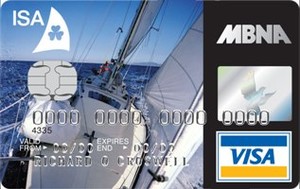Cruising sailor and money- The Twelve Tips
by Cruisers Network Online/Sail-World on 22 Nov 2010

Sailing with credit and debit cards is easier these days, but there are major pitfalls SW
Once the long range cruiser was obliged to go to very complicated systems and/or carry large quantities of cash while sailing in foreign climes. Today, with the explosion of internet-based banking and credit cards, life has become much easier, but the devil, and the would-be fraudsters, are in the detail.
Long range cruisers are more vulnerable than the normal citizen to banking and credit card fraud. On your home turf you have not only the bank, but family and friends to help you over a financial catastrophe, but if you're sailing in strange waters and you suddenly find there's no money in your bank accounts, it's a more-then-serious problem.
From the www.http://groups.yahoo.com/group/Cruisers_Network_Online/!Cruisers_Network_Online, here are a collection of tips from cruisers who are travelling right now, and suggest some answers and precautions.
1. Make sure your credit cards and debit cards have smart chips for greater security, and make sure that you have pins, not signatures for your cards. This makes purchasing train tickets at station kiosks possible and other such simple transactions. Small businesses are also equipped to take them.
2. Never let the card out of your sight. This is usually easy in most European and many other countries, as the staff in restaurants (both expensive and inexpensive) mostly use hand-held machines that they bring to your table.
3. Don't have your credit cards linked to your 'real' account. Have a separate account with a limited amount of money in it, which you transfer periodically according to your needs. This means that if you, sadly, end up one of the thousands who are the victim of ATM/debit fraud each year, you won't lose all your funds, and can simply transfer more money to a newly formed account.
4. Try to use a bank such as Schwab where they don't charge you international ATM fees
5. When using free wireless internet, where your computer can be easily hacked by the unscrupulous, never use an ATM/debit card for purchases. Always use a credit card.
6. Ideally, when communicating credit card numbers, put them into two separate emails.
7. On free wireless, your personal information can be attacked in your computer. If you keep all your various passwords in a computer file for safe keeping, DON'T label it as such. Choose a name that will not indicate the contents, and for an extra precaution, half the key codes and keep them in two separate documents. this should be the same with any of your vital information - you home address for instance.
8. You can buy insurance from such companies as www.zonealarm.com!Zone_Alarm, where the insurance can be as cheap as $50 to insure up to three computers.
9. Set your virus software so that only one or two programs, such as your default mail server, can actually send / recieve mail - this almost eliminates your computer being hijacked 'botted'.
10. Buy identity theft protection as a rider on one of your policies.
11. Use cash on all possible occasions, especially if you are in suspect areas of the world, and, of course, if you have to, don't ever ever let it out of your sight, even for a minute. It only takes a few seconds to clone your card. Explaining this BEFORE the transaction avoids complications.
12. Most internet/card thieves are opportunistic. It is up to you to avoid giving them the opportunity.
If you want to link to this article then please use this URL: www.sail-world.com/77197